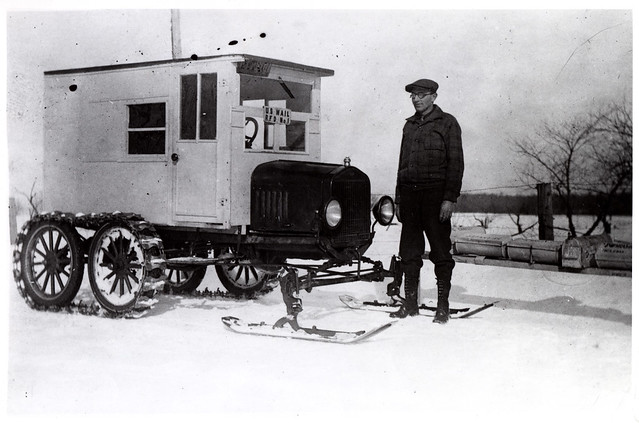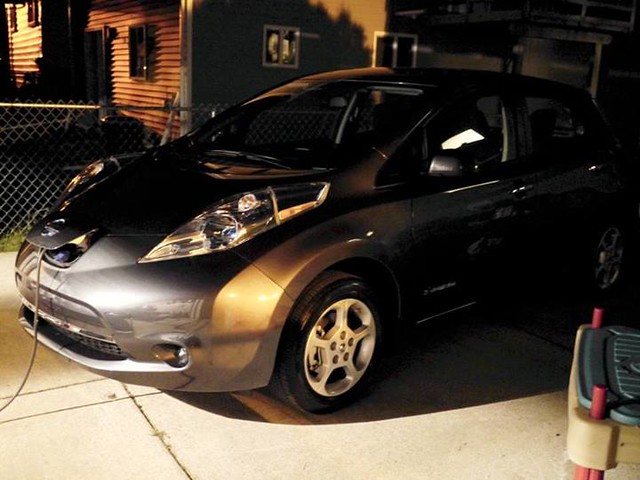 |
| What did I ever do to you, New York Times? |
TIME magazine compared the electric Honda Fit with its gas-powered twin, and found that it would take 11 years before the break even point. Around the same time, the New York Times ran an article in which the Nissan Leaf was said to take 9 years to start saving money over choosing an equivalent gas-powered car, and everybody knows that the average American only drives their car about as long as it takes to go through a toilet paper roll.
By TIME's math, it would take $8 per gallon gasoline before an electric car made sense at current MSRP.
Fortunately, electric cars have dropped thousands of dollars in price since those articles were written in 2012. Nissan dropped the MSRP of the Leaf by $6000. The Chevy Volt soon followed with a $5000 price cut. Honda dropped the price of its Fit EV lease by over $5000 over the course of three years, and threw in a free home charging station.
 |
| And when I flip the calculator upside down, it spells... |
Like any good geek, I did a lot of number-crunching prior to leasing the Leaf, and I was shocked by the results, given the conclusions reached by the good journalists at the New York Times and TIME magazine. Even in comparisons between my then-current used car and the Leaf, the numbers worked out in favor of the new electric car, and we’re talking on a monthly basis, not just over the course of a decade. Let's do a quick comparison to show what I mean.
Let's see the charts!
2013 Nissan Leaf SV. I chose this mid-grade model because it has the necessary features and options, like the navigation, and upgraded charger and heater. It also forgoes unnecessary luxuries like a high-end stereo, blingy wheels, and leather seating.
 |
| Fight! |
2014 Nissan Versa Note SV, SL tech package. This car is quite similar as a package to the Leaf SV, and the size is similar enough inside that most drivers and passengers would not notice a difference.
I took current gas prices and local electric rates, and using the average economy of both cars, computed what the lessee could expect to pay over 3 years and 36,000 miles for "fuel." The Leaf has no real maintenance, but the Versa owner must pay for oil changes even while the car is under warrantee. Then I factored in the total cost of the current advertised lease deals.
 |
| Look who's (not much) more economical! |
 |
| Bar Graphs don't lie. |
Another interesting thing to note is which of these numbers are "squishy" and which are solid. Few people think our current low fuel prices will stick around, so you could assume the price of fuel on the Versa will go up over time. Also, I know personally that deals are to be had on the Leaf lease - a well-informed consumer can save thousands over the advertised lease specials. I doubt the Versa lease specials are nearly as negotiable. Also, comparing against other cars is usually even more favorable. I should do a Leaf versus SUV graph just for fun.
 |
| And that's a base model, front wheel drive, 4 cylinder SUV. |
Graphs, charts, and numbers aside, I believe someone interested in leasing an electric car should simply forgo comparing cost of ownership with a similar vehicle, as the differences will be negligible. Driving the Leaf is a revelation - it is silent, smooth, and it's loaded with useful features you cannot find in other cars of this price point. If the range works for your lifestyle, then it deserves a test drive and serious consideration.
 |
| Shut up and take my money, but only after I consider every possible variable! |
Lease? But Dave Ramsey...
I personally don't yet believe in purchasing an electric vehicle. Theoretically, they should be less expensive over the long term to maintain, as they don't have a need for exhaust, emissions, coolant, oil, and many other gasoline-specific parts. In reality, we don't really know that yet, and I'm not willing to make the bet. Also, resale value is a huge question mark. Currently the Leaf has awful resale value, but again we don't have a lot of long-term data to say exactly why or whether that will continue. Finally, technology on these cars has been improving at such a rate, and prices have been falling so fast, that whatever EV hits the market in 3 years should be a much better car, for a similar or lower price. Tesla is readying a mid-priced model in that time frame, for example.








